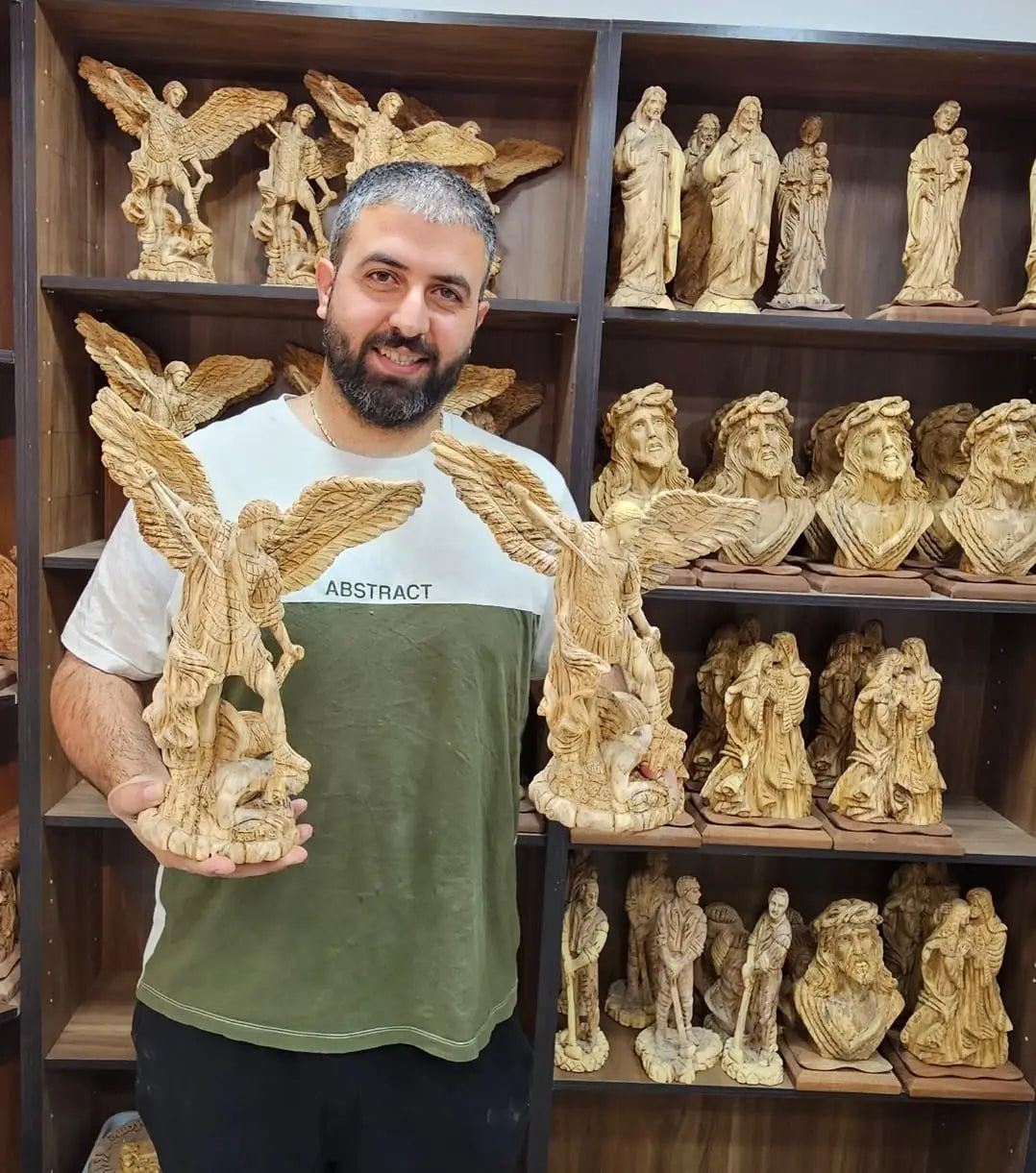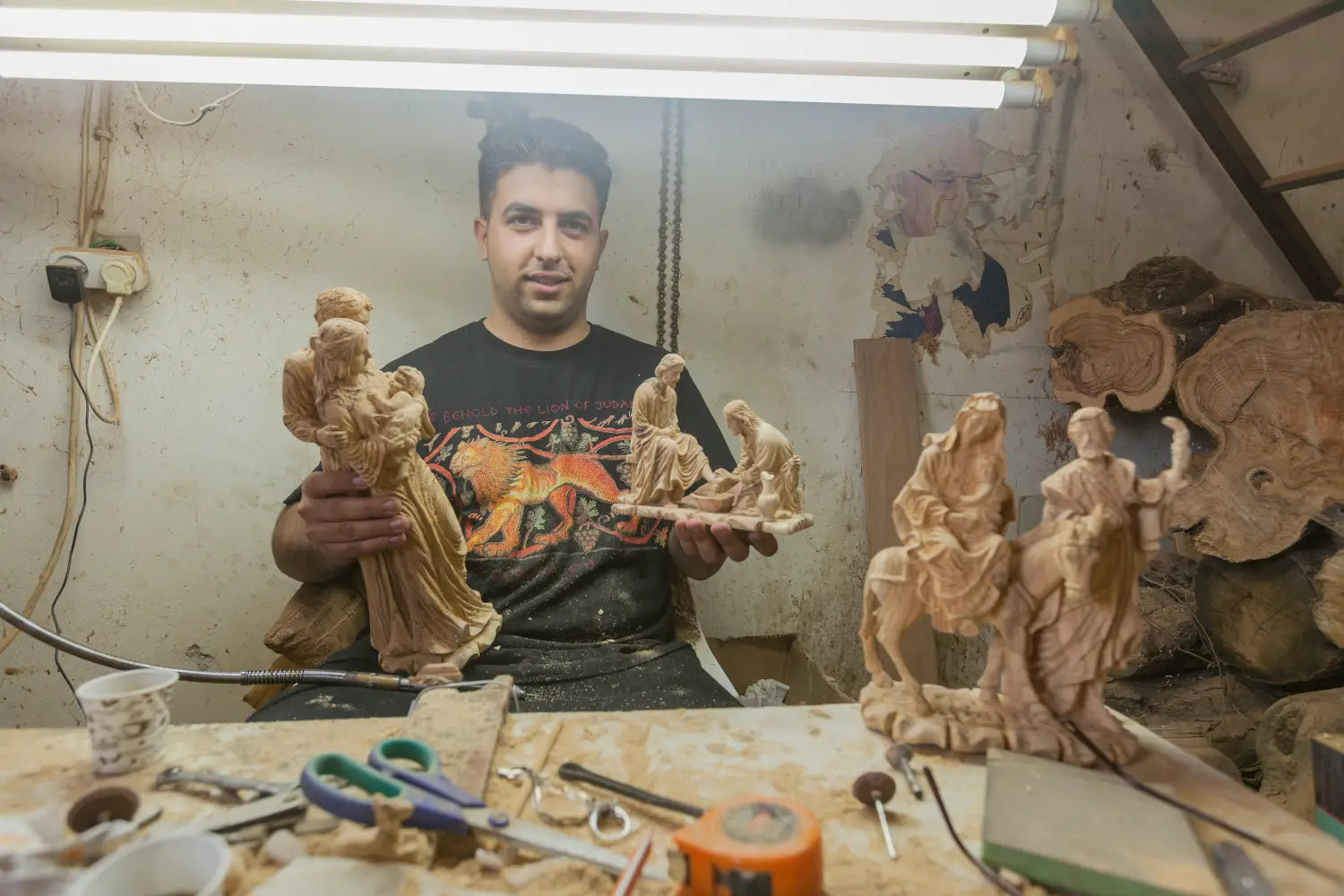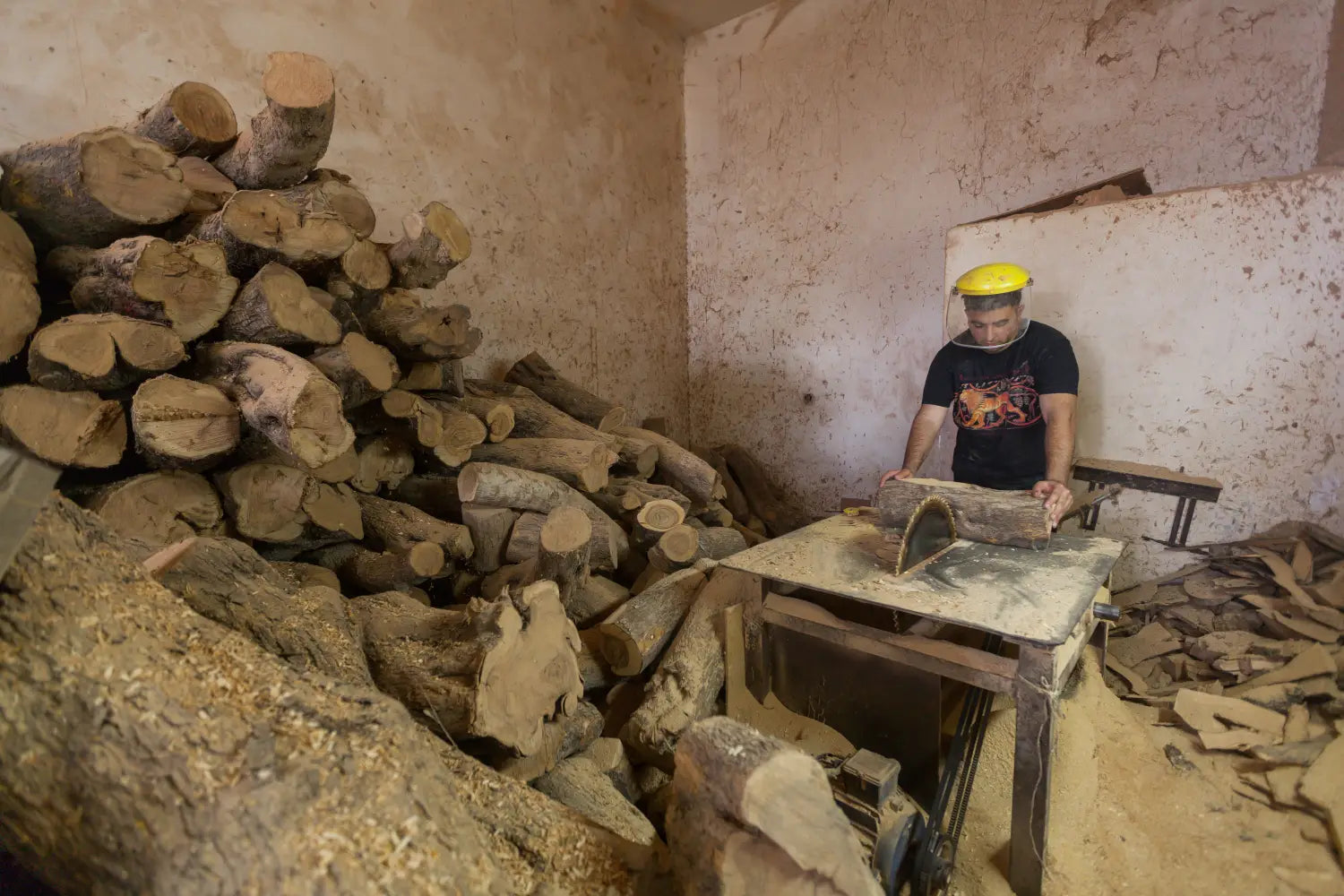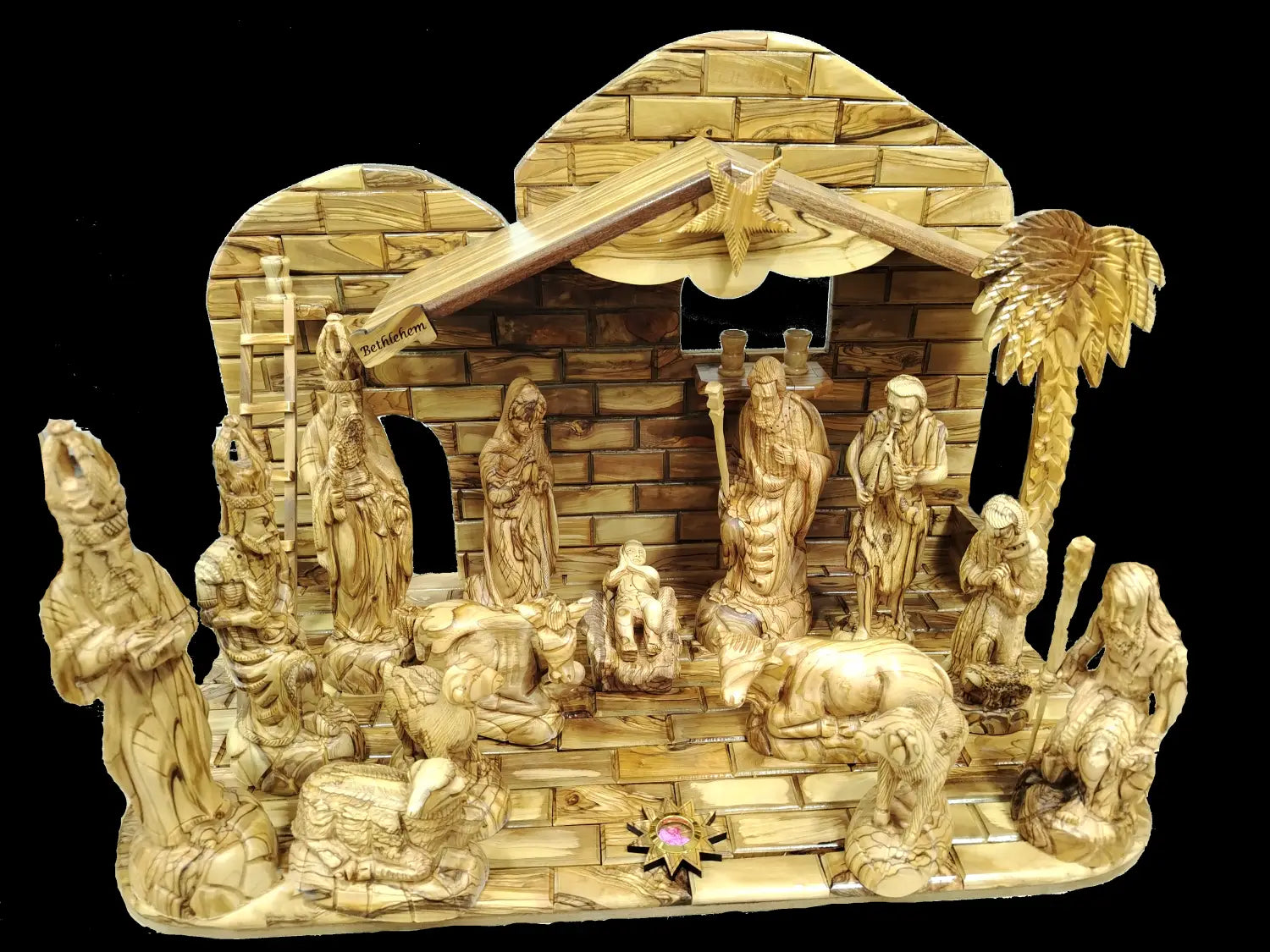Think You Bought a Holy Land Souvenir? It Might Be a Fake from China

The Shocking Truth About Holy Land Souvenirs: Who’s Really Profiting from Your Faith?

You came to the Holy Land to walk where Jesus walked—but did your “authentic” souvenir come from a Chinese factory?
It’s a question that might sting, but it’s one that every pilgrim, traveler, or tourist to the Holy Land needs to ask before stepping into a gift shop. Because behind the polished olive wood and peaceful nativity scenes... is a truth that few talk about. And it's costing real Christian families everything.
What Most Tourists Don’t Know
Bethlehem, Jerusalem, and Nazareth are flooded with souvenir shops claiming to offer handmade religious gifts . Crosses, rosaries, olive wood statues you name it . They carry the Holy Land stamp, and the price seems fair . So naturally, people assume their money is supporting Christian families who’ve been crafting these items for generations .
But that assumption ... is often wrong .
The Unseen Reality: Who Really Owns These Shops ?
It might surprise you, but many shops along the main tourist routes especially in Jerusalem’s Old City aren’t owned by Christian locals at all . Some are operated by large companies or families who use Christian symbols purely for profit, without any real faith or heritage behind them . They know what sells . They know tourists won’t ask. And they capitalize on it .
Even worse? Many shops pretend to be Christian-owned or claim their items are from Bethlehem … when they’re not .
Factory-Made “Faith” – The China Problem
You’d be shocked how many so-called "Bethlehem" souvenirs are made in bulk in China, then shipped to the Holy Land and resold at a markup. It’s hard to tell at first glance—these imports are designed to mimic handmade olive wood carvings, but they lack the soul, detail, and story of a true piece from a local craftsman.
Let’s be blunt: buying one of these is like buying a Paris Eiffel Tower keychain made in Pakistan.
The Rise of Corporate Exploitation
Over the years, corporate-style souvenir networks have taken over the market. These businesses may donate to large institutions or spend on marketing, but they’ve crushed the individual artisans—Christian families in Bethlehem and Beit Sahour who once relied on their faith, hands, and heritage to feed their children.
Now, many of these families have shut down their workshops. Their craft is being lost.
Why? Because tourists unknowingly choose convenience over authenticity.

What It Really Costs
When you buy a cheap imitation, you’re not just wasting money you’re funding the erasure of Bethlehem’s Christian presence . Every purchase from a fake "Holy Land" source pushes another local family closer to shutting their doors . Some leave the country entirely, forced to abandon generations of tradition .
And yet, it doesn’t have to be this way .
Zuluf: Real Christians, Real Bethlehem, Real Craftsmanship
At Zuluf.com, we aren’t middlemen . We are Palestinian Christians born and raised in Bethlehem . Our artisans are our neighbors, friends, cousins. Every cross, rosary, or statue you see on our site is hand-carved in Bethlehem, not imported or mass-produced .
Why Zuluf?
-
Genuine Craftsmanship: We use local Holy Land olive wood cut, carved, and polished by Christian hands .
-
Fair Trade: Our artisans receive fair pay, not factory pennies .
-
Cultural Preservation: Your purchase supports families staying in Bethlehem, keeping the tradition alive .
This isn’t just business. It’s survival .
How to Avoid Being Misled
Here are a few tips to help you shop ethically and smartly :
-
Ask Questions: Where exactly was this made? Can I meet the artisan ?
-
Watch for Clones: If you see rows of identical carvings be wary. Handmade items have variations .
-
Investigate the Website: If it doesn’t say clearly who owns it or where the products are made, walk away .
-
Trust Local Christian Sources: Especially those based in Bethlehem—not just those who “say” they are .
Your Purchase = A Statement of Faith
Buying a souvenir isn’t just a transaction—it’s a declaration. You’re saying this matters to me. You're either helping a local Christian artisan stay in Bethlehem… or helping a corporation profit off your faith.
So next time you shop in the Holy Land or online, ask yourself:
Who am I really supporting?













